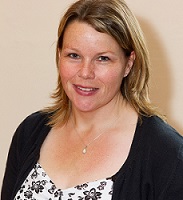
When a couple separates, it can be very difficult to process the feelings of hurt and grief that are associated with ending a relationship while also developing a shared parenting arrangement.
We don’t own our children. Our role as parents is to provide them with every opportunity to have happy, safe childhoods; childhoods where dreams come true, where life is simple and full of love, where children don’t feel they have to choose which parent they love more. A childhood where they can come and go freely between parents and experience love from both, where they don’t witness conflict or feel the sadness of parents struggling through the difficulties that shared parenting can create. Sharing parenting is about your child's needs. It is not about you, the parent. The conversation should not be about who has your child with them more, it should be about how both of you as parents can make your child’s life the best it can be.

To do this, you must attempt to let go of the hurt arising from your relationship breakdown. Accept that the relationship has ended, for whatever reason, and move on. It’s not going to be easy, but it will allow you to get on with parenting and see the other parent as just that - the other parent - nothing more and nothing less. Ideally, or perhaps in time, they will also be someone you can talk with, share the worry of parenting with, the cost of parenting with, and the decisions surrounding raising your child. Many parents get to this place, and when they do, it all becomes much easier.
Developing a parenting plan with the other parent is a key way to communicate what your child has achieved each week or month, while in each other’s care. Admire their achievements together as parents. Let the other parent know about positive occurrences in your child's life. Tell them about something funny they said or did, when they slept well, new friends they have made, that school test they did well in. Focusing the conversation on what the children are doing can also help you to remain strong if feelings of hurt from the separation linger.

I'll share the story of one dad who told me how he realised, two years after a divorce, that the key to peaceful shared parenting was communication. At the beginning he didn’t see this. He avoided communication at all costs, which resulted in heavy conflict. It took time for him to explore his issues with communication and the feelings it could raise for him. It then took time for him to come to terms with the fact that he didn’t like feelings. He preferred if they stayed hidden well beneath the surface.
With support, and with his own bravery, he allowed his feelings to surface and owned his own part in the separation in order to get to where he needed to be. Where he needed to be was at the core of parenting his children. Now, for the first time, he is a hands-on father, but it took a separation for him to find his way to parent.

How do you communicate with your child’s other parent? How does your child need you to communicate their needs? This is your time to reflect on your communication skills. Find a way to talk. Talk until you find a way to share parenting. Childhood is short, it may seem like you will never get through this, yet it won’t be long until your children are grown. Get the support you need; that could mean talking with a trusted friend or helpline, or a counsellor, mentor or mediator. You can successfully share parenting of your child. Communicate. Start as soon as possible. Most of all, start talking.
One Family’s askonefamily helpline provides support for people who are parenting alone, sharing parenting or separated, on 1890 662 212.





